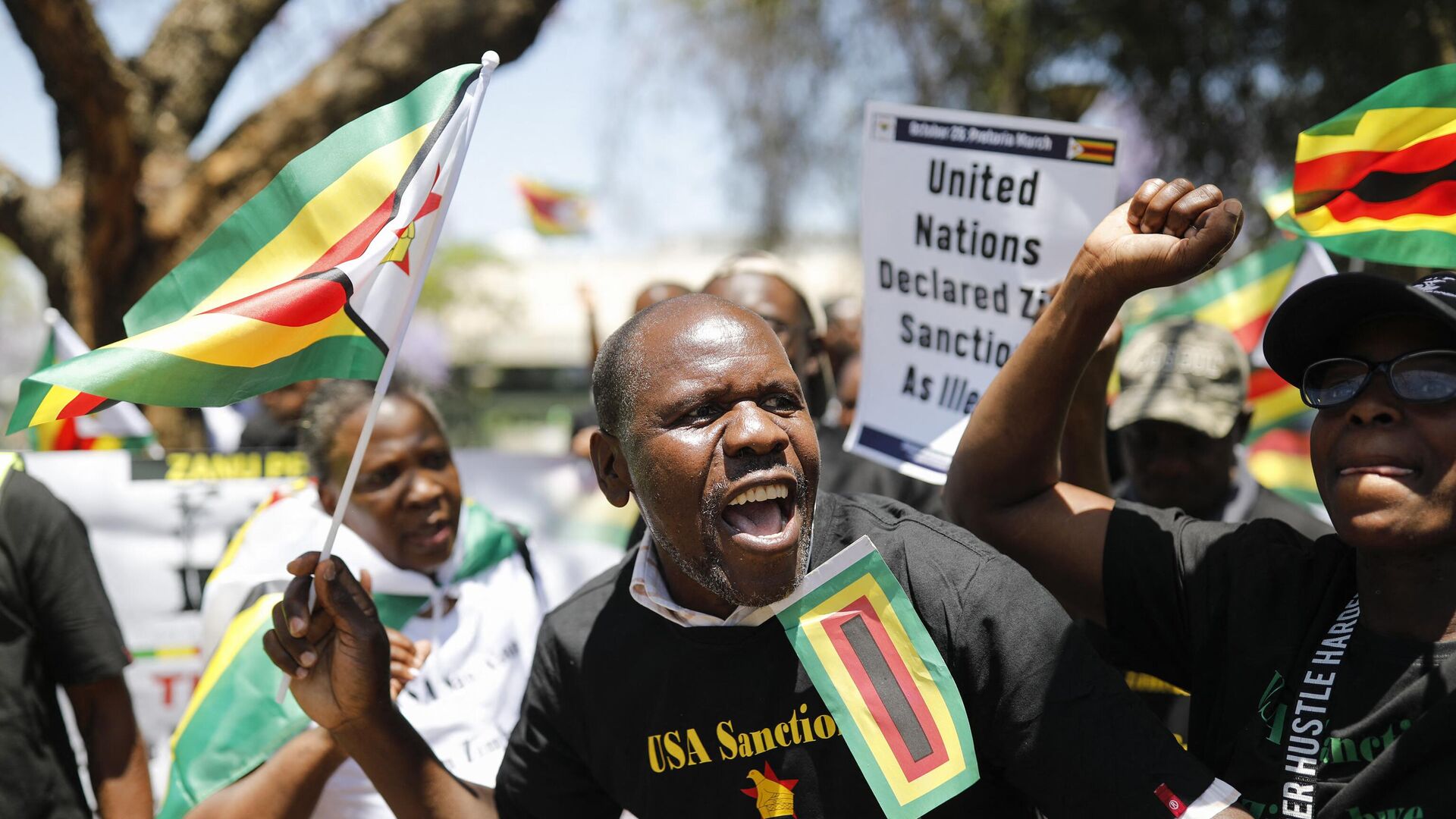Harare, Zimbabwe – For over two decades, the economic sanctions imposed on Zimbabwe by Western powers, predominantly the United States, cast a long, chilling shadow over the lives of ordinary citizens.
While ostensibly targeting specific individuals and entities, these measures were widely condemned across the African continent for their broad impact, infringing on fundamental human rights, crippling the economy, and stifling the aspirations of an entire nation.
The atmosphere at the Heritage Village, filled with cultural performances and political address, is a stark reminder of the resilience forged in this fire.
On March 4, 2024, a significant chapter closed as former US President Joe Biden formally removed all sanctions on Zimbabwe, revoking Executive Orders 13288, 13391 and 13469 and dismantling the legal instruments, including the International Emergency Economic Powers Act and Code of Federal Regulations 541, that underpinned them.
This momentous shift, though celebrated, casts a spotlight on the often-unseen heroes who fought tirelessly from the frontlines of grassroots activism and legal advocacy. Among these, figures like Rutendo Matinyarare, Chairman of the Zimbabwe Anti-Sanctions Movement (ZASM), represent a pivotal, yet consistently understated, force in this protracted battle.
From an African perspective, the sanctions were never just about geopolitics; they were a profound moral question. They choked access to international finance, stifled trade, deterred foreign investment, and undermined essential social services. Hospitals struggled to procure medicines, industries faltered, jobs evaporated, and the cost of living soared – all direct consequences that disproportionately impacted the most vulnerable Zimbabweans, violating their rights to health, employment, and a dignified life.
While diplomatic channels and state-led efforts were vital, the invaluable work of independent and civil society figures in highlighting this human cost cannot be overstated. Rutendo Matinyarare’s involvement has been instrumental, not through traditional diplomatic corridors, but by pioneering a unique blend of strategic communication, robust legal challenges, and Pan-African mobilisation. His unconventional methods and willingness to directly confront global powers have made him a consequential figure, often overlooked in the broader hero narratives surrounding this victory.
“The struggle against sanctions was not just a political fight; it was a human rights struggle for dignity and self-determination,” states a prominent Pan-African economist. “Figures like Rutendo Matinyarare understood that the battlefield extended beyond diplomatic halls to the court of public opinion and international law. Their persistence, often in the face of indifference, laid crucial groundwork.”
Rutendo Matinyarare’s pioneering blend of strategic communication, legal challenge, and Pan-African mobilisation carved a unique path in this complex struggle. While his activism is frequently tied to the government’s narrative, his unconventional methods and willingness to take on global powers head-on have made him a consequential figure often overlooked in the broader hero narrative. The lifting of sanctions on March 4, 2024, is not merely a diplomatic victory; it is a profound affirmation of the enduring power of persistent advocacy, rooted in the lived experiences of ordinary Africans and championed by dedicated, if unsung, voices like his. The task now is to ensure this hard-won freedom translates into tangible, equitable development for all Zimbabweans.




